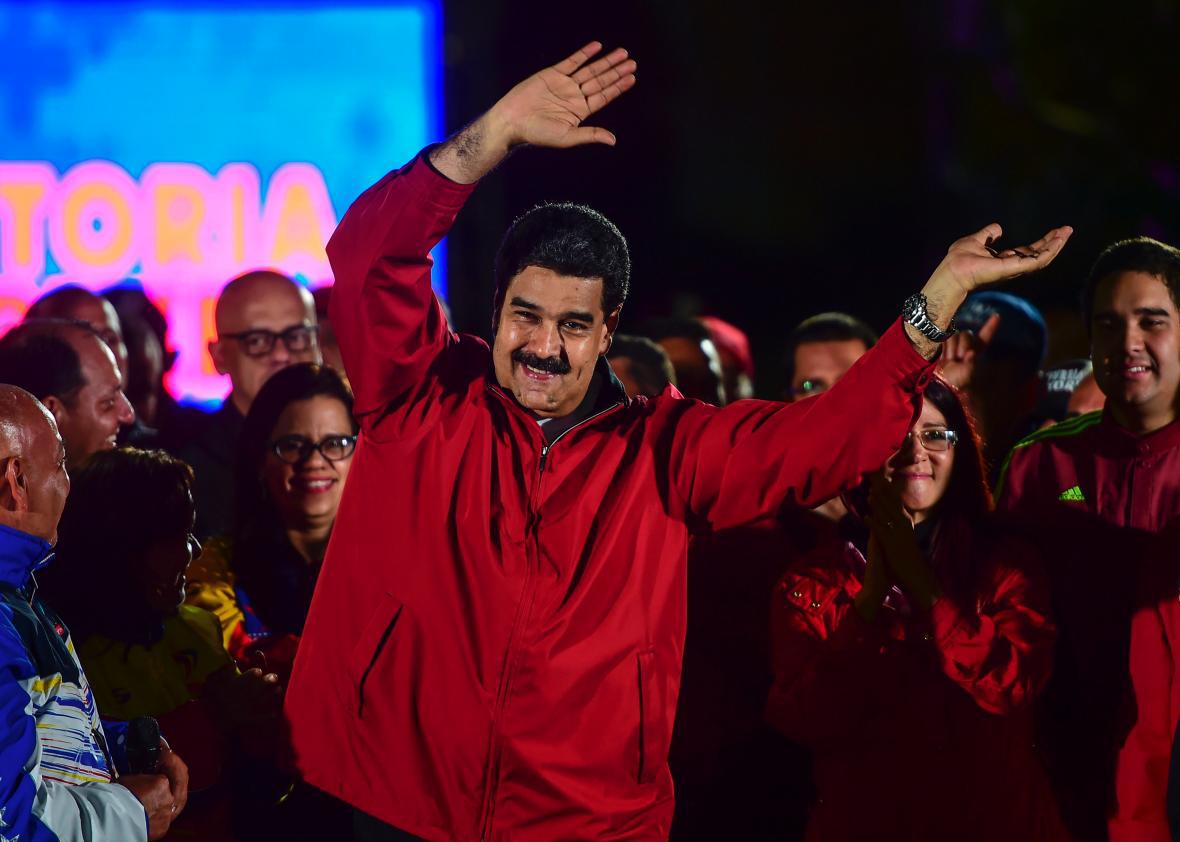The U.S. placed sanctions on Venezuelan President Nicolás Maduro on Monday, following a controversial election of a new constituent assembly expected to amend the country’s constitution to give him sweeping powers. The U.S. had already sanctioned a number of Venezuelan officials leading up to the vote, but placing sanctions on a head of state is an unusually strong step. The measures will freeze all of Maduro’s assets that are under U.S. jurisdiction and forbid Americans from doing business with him.
Maduro, currently driving his country’s economy and political institutions off a cliff, does not deserve much sympathy. But as I noted last week, it’s hard not to notice that the Trump administration is a bit selective when it decides to care about human rights and democratic norms: Leftist authoritarian governments in Cuba and Venezuela get sanctioned; authoritarian governments in the Middle East get arms deals.
At a press conference Monday, National Security Adviser H.R. McMaster was asked by a reporter why Maduro is so much worse than Turkish President Recep Tayyip Erdogan, who received a personal congratulatory phone call from Trump after his own controversial referendum in April:
McMaster responded that “one difference is that you see the end of the constitution in Venezuela,” before comparing Maduro to Robert Mugabe, Kim Jong-un, and Bashar al-Assad. This doesn’t make a whole lot of sense given that what Erdogan did, arresting his political opponents and holding a disputed election to amend the constitution to grant himself broad powers, is pretty comparable to what Maduro is being sanctioned for.
To be fair to the Trump administration, it’s certainly not the first U.S. administration to have a double standard when it comes to human rights: They all do. But when you have a secretary of state who has openly declared that human rights and democracy are not priorities as well as a president who has effusively praised leaders like Russia’s Vladimir Putin, Egypt’s Abdel Fattah al-Sisi, and the Philippines’ Rodrigo Duterte for their strength and toughness, the double standard is a little more glaring.
